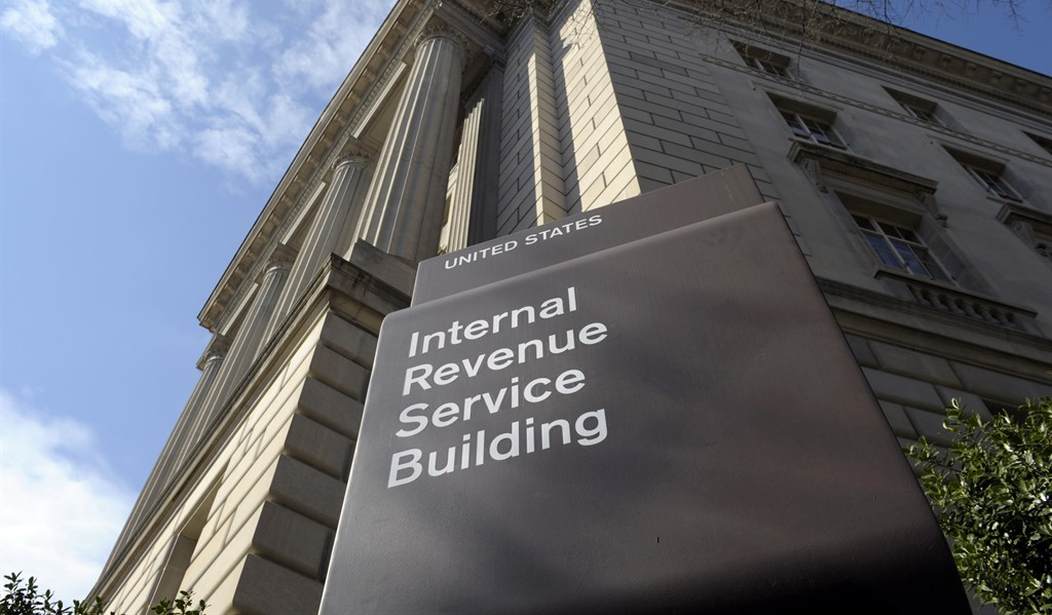After Congress passed a $1.1 trillion dollar spending bill, along with a $680 billion tax bill, conservatives railed that this was another instance of GOP capitulation to the Obama White House. Another thing that might irk them is that fact that the bill gave the IRS a three percent increase in funding. While it’s almost $2 billion shy of what the president wanted, the fact that this federal agency, which is still embroiled in controversy over the alleged targeting of conservative groups, is surely not a welcome piece of news (via The Hill):
The $1.1 trillion omnibus provides an additional $290 million for the IRS, an increase of 3 percent over the last fiscal year.Lawmakers specified that the additional funding is to be used for “taxpayer services to ensure that the agency responds to taxpayer questions in a timely manner, and to improve fraud detection and prevention and cybersecurity,” according to a summary from Republicans on the House Appropriations Committee.
The base funding level for the IRS was kept at about $10.9 billion.
The IRS had seen its funding repeatedly slashed since the controversy erupted over the agency’s heightened scrutiny of Tea Party groups.
In fiscal 2015, Republicans hit the IRS with a $346 million budget cut, pushing the agency’s overall funding lower than it had been in fiscal 2008. In fiscal 2014, the IRS received $526 million less than it had the year before that.
The omnibus law provides $1.7 billion less for the IRS than Obama had requested for the agency in his budget.
In November, Citizens Against Government Waste detailed a compelling case for why current IRS Commissioner John Koskinen should be impeached, citing serial failures in accountability. They had called upon him to resign. Just before Halloween the House Oversight Committee introduced a resolution to have Koskinen impeached. In July, a judge threatened to drag the agency to court after the commissioner ignore court orders to turn over documents relating to Lois Lerner’s emails, the former IRS director of the Exempt Organizations Unit, who is at the epicenter of the controversy.
Recommended
Yet, back to budgetary matters, this omnibus is going to do no favors for the next president:
The omnibus comes on the heels of the October budget deal that overspent the sequester caps by $80 billion over two years. That budget-buster created a precedent for Congress to likely add hundreds of billions more in spending over the coming decade. The new omnibus sticks to the inflated October discretionary amounts, but then adds $160 billion in new spending over the coming decade by extending various “refundable” tax credits.The highway bill signed into law a few weeks ago was another spending orgy engineered by Republican leaders. Highway and transit spending has soared 48 percent over the past 10 years, creating a giant gap in the highway trust fund. The GOP solution to the problem: increase spending even more over the next five years, including spending on wasteful transit, and then use budget gimmicks to pretend to pay for it.
All this spending is going to land like a ton of bricks on the desk of the next president. According to the Congressional Budget Office (CBO), federal debt held by the public will be $14 trillion and growing quickly when the new president enters office in 2017. Deficits of $500 billion or more his first couple years will be rising toward $1 trillion by the early 2020s.
Growing entitlement spending and soaring federal interest costs will make the next president’s hair turn gray even faster than that usually happens. CBO expects interest costs to more than triple over the next decade as debt balloons and interest rates rise. In writing his first federal budget, the next president will be looking at adding $10 trillion of red ink over 10 years unless he can force spending cuts through Congress.
This will only be exacerbated if Hillary Clinton is elected next year. Her proposals call for an additional $1 trillion in spending over the next ten years.
























Join the conversation as a VIP Member